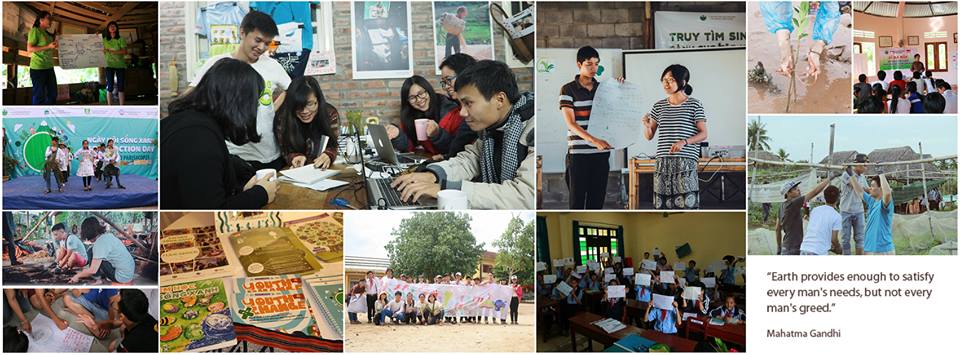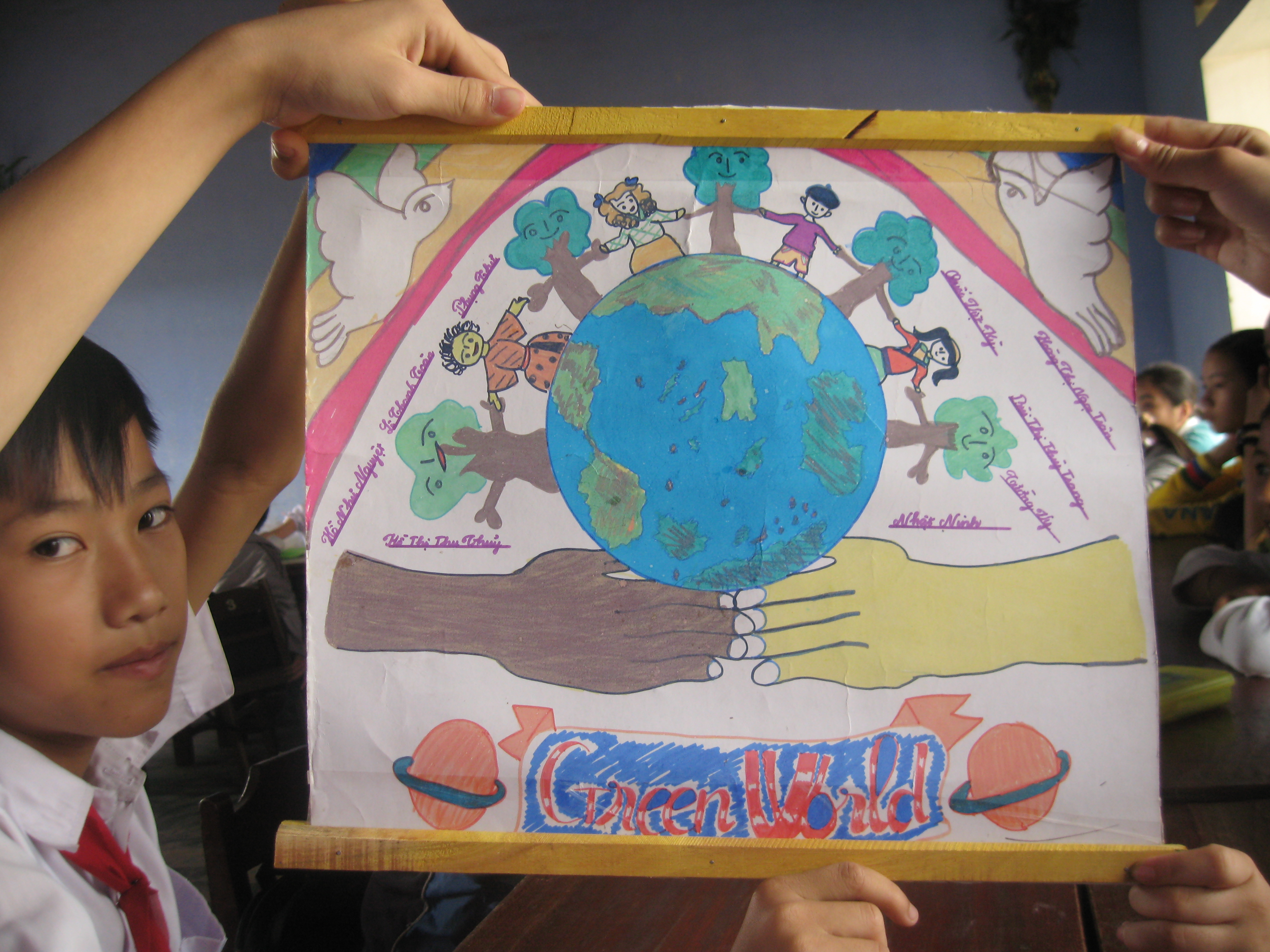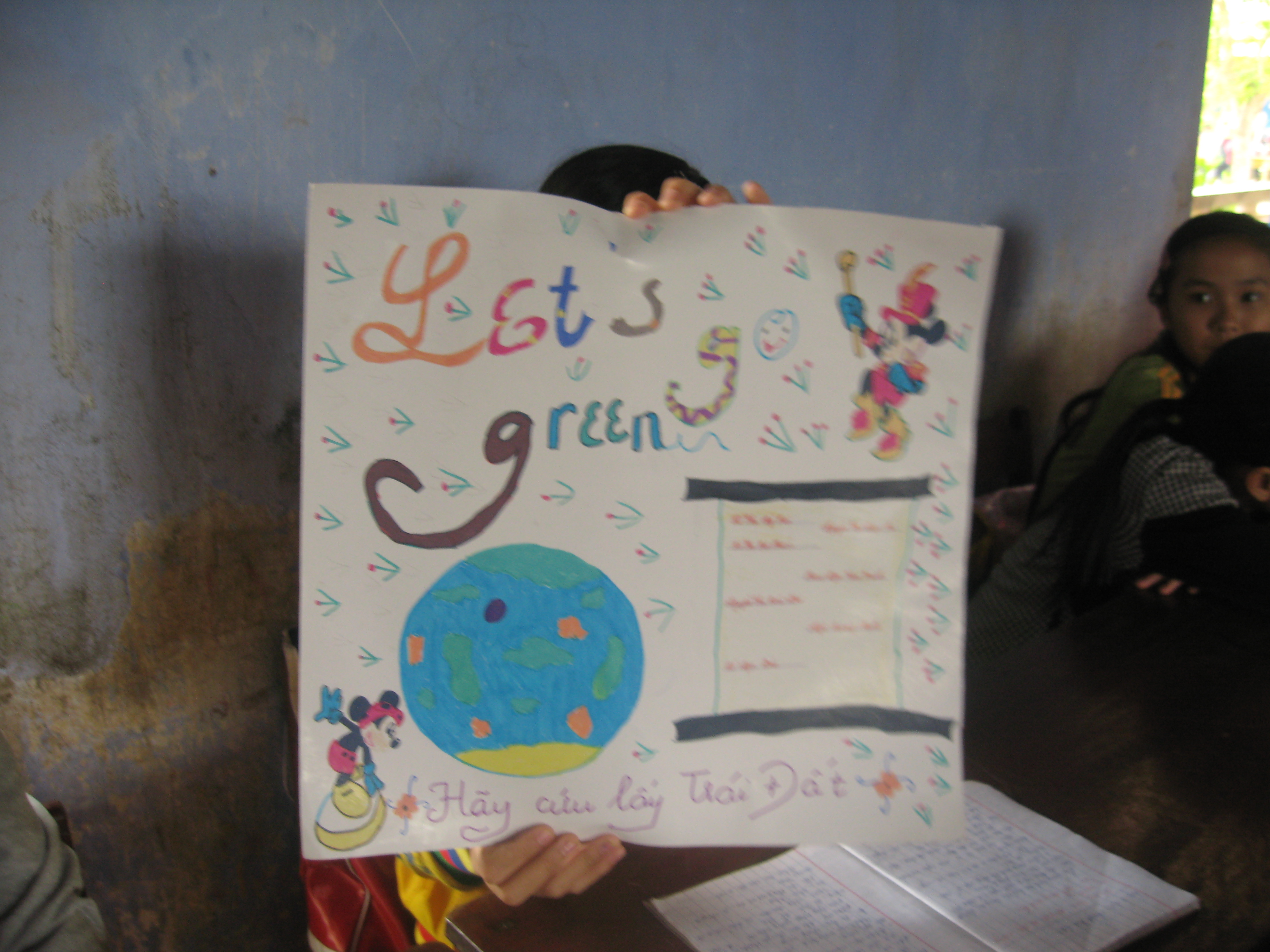Project Introduce
Summary
Almost half of greenhouse gas emissions are from direct and indirect emission by households, including motor fuel use and residential fuel use (direct emissions) and industrial production of the goods and services purchased by households (indirect emissions). These emissions can be cut significantly by individual households and the community.
Interventions to target households and individuals to reduce both direct and indirect emissions are still limited in Vietnam. While having a significant potential role, schools have not been able to engage pupils, their families and communities to reduce emissions. There are several reasons, including a lack of good models, limited teachers’ capacity, limited links to other civil society actors, inadequate resources and weak influence on education and community decision makers.
In July 2009, Action Center for the City Development (ACCD), the Centre for Development of Community Initiative and Environment (C&E) and Global Action Plan International, Sweden (GAP) entered in a long term partnership to promote individual behaviour change programs in Vietnam. In the partnership, the three organisations are expected to equally share, learn and contribute to the success of the project based on their unique expertise. GAP has rich experience in behaviour change for sustainability in different contexts and different cultural settings. ACCD and C&E have been known for their innovation and effectiveness in building community capacity and implementing education for sustainable development initiatives in both urban and rural areas of Vietnam.
Partnership developmental purpose
Communities with the EcoTeam programs experience long-term increasing improvement in their living with their newly developed sustainable daily habits.
Partnership long-term objectives
GAP, C&E and ACCD and other stakeholders enter a close partnership to facilitate effective climate behaviour change models in Vietnam.
Specific Project Objectives
1. GAP, C&E and ACCD have stronger capacity and enable schools, teachers and youth leaders in Vietnam to outreach to community to reduce CC through Pupil EcoTeam models.
2. GAP, C&E and ACCD build up strategic collaboration with CSOs, decision makers at all levels and other stakeholders to advocate replication of the EcoTeam model for community behaviour change related to climate change.
Project overview
The project will adapt, develop, test and advocate a model for implementing EcoTeams in schools as a way to engage a community to become proactive in regard to climate. Based on the experimental pedagogy, pupils will be coached weekly in small groups of maximum 8 students in their free time. The EcoTeam program is tested during extra curricular time but its curriculum will be designed with the intention that the teachers can use it in an existing official subject.
Pupils will explore sustainability issues through their experience of implementing sustainable actions at home and school. They will engage their peers and family members to reduce waste, save energy, reduce toxins and chemical use, and improve health and personal development. Guidebook for pupils and teachers will be developed with the participation of education leaders, experts and students.
The schools will be the catalyst to bring all partners, including parents, pupils, local communities, NGOs and private sectors together for concerted action.
The project will also provide capacity-building opportunities for different stakeholders and disseminate the lessons learnt through seminars, workshops, and advocacy activities.
Time frame
The project will be implemented from January 2011 to December 2013.
The project areas
The project will be implemented in Hanoi, Thai Binh and Thua Thien Hue


.jpg)
